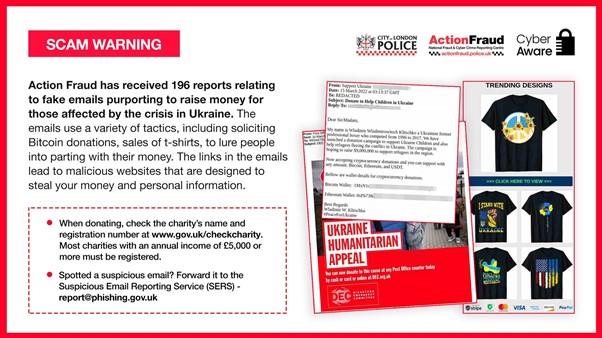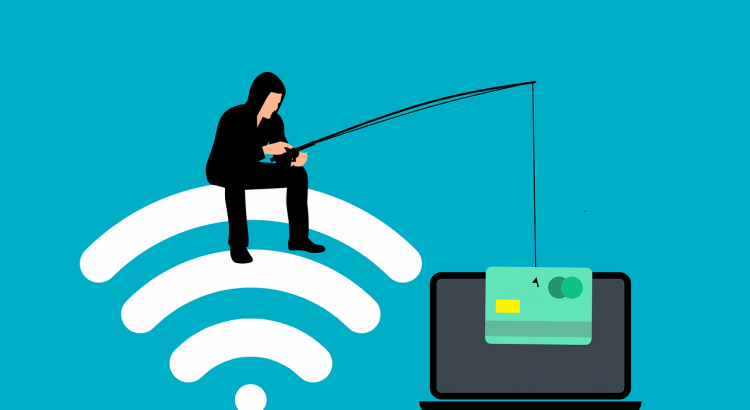Like most of us, during a crisis, we will want to show our support and donating to the cause, is often the most common method to allow people to show their support. Unfortunately for us, it appears that, unfortunately, we live in a time where there are several people and groups who like to take advantage of humanitarian crisis for their own financial gain.
We have seen examples of humanitarian scams before, probably most recently in relation to Covid-19, but you may also recall multiple scams relating to the 9/11 and Grenfell Tower disasters, many of which were initially successful in gaining fund available to support those affected by events.
With the current war in Ukraine, it is no different. Action Fraud, who is the UK’s national fraud reporting centre, has advised they have received reports of 196 fraudulent emails, claiming to be fundraising for victims of the war in Ukraine. These scams deploy several methods to encourage people to part with their cash, ranging from “selling” merchandise (that never arrives) or re-directing people to malicious websites that subsequently steal personal information.
Action Fraud have shared advice on how to detect scams:
- Never click on the links or attachments in suspicious emails or respond to unsolicited messages asking for personal or financial details – even if they are in the name of a charity.
- To donate online, type in the address of the charity website rather than clicking on a link.
- Be cautious when donating to an online fundraising page – fake ones are often badly written or contain spelling mistakes
- Before donating, check the charity’s name and registration number on www.gov.uk/checkcharity as charities with an annual income of £5,000 or more must be registered.
- Report suspicious emails by forwarding them to report@phishing.gov.uk (if personal emails) or via the Report function within outlook (if work related emails).
Here is a link to an article outlining some of the different scams relating to Ukraine and another link outlining a variety of scams out there, including energy price scams and romance scams.

If you are at all concerned please contact the Information Centre information.centre@stir.ac.uk
